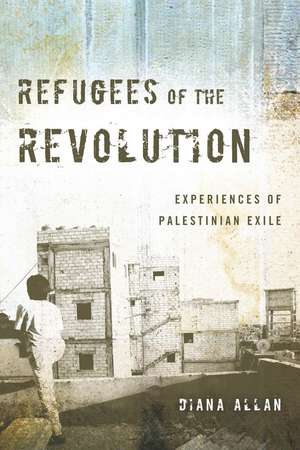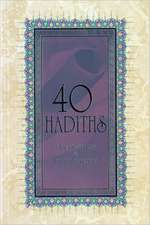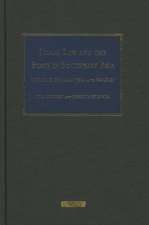Refugees of the Revolution: Experiences of Palestinian Exile: Stanford Studies in Middle Eastern and I
Autor Diana Allanen Limba Engleză Paperback – 12 noi 2013
Some sixty-five years after 750,000 Palestinians fled or were expelled from their homeland, the popular conception of Palestinian refugees still emphasizes their fierce commitment to exercising their "right of return." Exile has come to seem a kind of historical amber, preserving refugees in a way of life that ended abruptly with "the catastrophe" of 1948 and their camps—inhabited now for four generations—as mere zones of waiting. While reducing refugees to symbols of steadfast single-mindedness has been politically expedient to both sides of the Arab-Israeli conflict it comes at a tremendous cost for refugees themselves, overlooking their individual memories and aspirations and obscuring their collective culture in exile.
Refugees of the Revolution is an evocative and provocative examination of everyday life in Shatila, a refugee camp in Beirut. Challenging common assumptions about Palestinian identity and nationalist politics, Diana Allan provides an immersive account of camp experience, of communal and economic life as well as inner lives, tracking how residents relate across generations, cope with poverty and marginalization, and plan––pragmatically and speculatively—for the future. She gives unprecedented attention to credit associations, debt relations, electricity bartering, emigration networks, and NGO provisions, arguing that a distinct Palestinian identity is being forged in the crucible of local pressures.
What would it mean for the generations born in exile to return to a place they never left? Allan addresses this question by rethinking the relationship between home and homeland. In so doing, she reveals how refugees are themselves pushing back against identities rooted in a purely nationalist discourse. This groundbreaking book offers a richly nuanced account of Palestinian exile, and presents new possibilities for the future of the community.
Refugees of the Revolution is an evocative and provocative examination of everyday life in Shatila, a refugee camp in Beirut. Challenging common assumptions about Palestinian identity and nationalist politics, Diana Allan provides an immersive account of camp experience, of communal and economic life as well as inner lives, tracking how residents relate across generations, cope with poverty and marginalization, and plan––pragmatically and speculatively—for the future. She gives unprecedented attention to credit associations, debt relations, electricity bartering, emigration networks, and NGO provisions, arguing that a distinct Palestinian identity is being forged in the crucible of local pressures.
What would it mean for the generations born in exile to return to a place they never left? Allan addresses this question by rethinking the relationship between home and homeland. In so doing, she reveals how refugees are themselves pushing back against identities rooted in a purely nationalist discourse. This groundbreaking book offers a richly nuanced account of Palestinian exile, and presents new possibilities for the future of the community.
| Toate formatele și edițiile | Preț | Express |
|---|---|---|
| Paperback (1) | 175.18 lei 3-5 săpt. | |
| Stanford University Press – 12 noi 2013 | 175.18 lei 3-5 săpt. | |
| Hardback (1) | 647.52 lei 6-8 săpt. | |
| Stanford University Press – 12 noi 2013 | 647.52 lei 6-8 săpt. |
Din seria Stanford Studies in Middle Eastern and I
-
 Preț: 177.01 lei
Preț: 177.01 lei -
 Preț: 203.47 lei
Preț: 203.47 lei - 19%
 Preț: 362.30 lei
Preț: 362.30 lei -
 Preț: 155.43 lei
Preț: 155.43 lei -
 Preț: 169.42 lei
Preț: 169.42 lei -
 Preț: 175.59 lei
Preț: 175.59 lei -
 Preț: 148.27 lei
Preț: 148.27 lei -
 Preț: 165.27 lei
Preț: 165.27 lei -
 Preț: 175.59 lei
Preț: 175.59 lei -
 Preț: 176.60 lei
Preț: 176.60 lei -
 Preț: 192.52 lei
Preț: 192.52 lei -
 Preț: 248.50 lei
Preț: 248.50 lei -
 Preț: 168.36 lei
Preț: 168.36 lei -
 Preț: 216.96 lei
Preț: 216.96 lei -
 Preț: 206.50 lei
Preț: 206.50 lei -
 Preț: 171.47 lei
Preț: 171.47 lei -
 Preț: 195.80 lei
Preț: 195.80 lei -
 Preț: 193.38 lei
Preț: 193.38 lei -
 Preț: 165.27 lei
Preț: 165.27 lei -
 Preț: 172.91 lei
Preț: 172.91 lei -
 Preț: 200.41 lei
Preț: 200.41 lei -
 Preț: 170.00 lei
Preț: 170.00 lei -
 Preț: 204.51 lei
Preț: 204.51 lei -
 Preț: 233.24 lei
Preț: 233.24 lei -
 Preț: 149.32 lei
Preț: 149.32 lei -
 Preț: 171.63 lei
Preț: 171.63 lei -
 Preț: 242.22 lei
Preț: 242.22 lei -
 Preț: 226.67 lei
Preț: 226.67 lei
Preț: 175.18 lei
Nou
Puncte Express: 263
Preț estimativ în valută:
33.52€ • 34.64$ • 27.89£
33.52€ • 34.64$ • 27.89£
Carte disponibilă
Livrare economică 26 februarie-12 martie
Preluare comenzi: 021 569.72.76
Specificații
ISBN-13: 9780804774925
ISBN-10: 0804774927
Pagini: 328
Dimensiuni: 152 x 229 x 22 mm
Greutate: 0.45 kg
Editura: Stanford University Press
Colecția Stanford University Press
Seria Stanford Studies in Middle Eastern and I
ISBN-10: 0804774927
Pagini: 328
Dimensiuni: 152 x 229 x 22 mm
Greutate: 0.45 kg
Editura: Stanford University Press
Colecția Stanford University Press
Seria Stanford Studies in Middle Eastern and I
Recenzii
"[This] book provides a compelling testimony of the day-to-day struggles in Shatila . . . Allan's carefully crafted ethnography avoids reducing the camp to the prevailing sense of hopelessness and despair that has been constitutive for the Palestinian experience and instead delivers a thought-provoking, self-critical reflection on the paradoxes and limits of camp research."—Monika Halkort, Journal of Palestine Studies
"Allan's book is the key for anyone who wants to understand one of the most dramatic strands of sixty-plus years of Palestinian dispossession."—Victoria Brittain, The Political Quarterly
"Diana Allan has finally produced the book on Palestinian refugees in Lebanon that should have been written twenty-plus years ago . . . Brilliantly employing a phenomenological approach, Allan richly portrays the complexities and the frustratingly intricate negotiations among refugees, and between them and Palestinian power sectors as well as Lebanese national institutions, to secure services and meet personal obligations . . . Allan's meticulous research and insightful observations combine with her articulate writing style to produce extraordinary clarity. She brings to life the constant horrors and dilemmas of Palestinian refugee life in Lebanon by providing the contexts and allowing refugees to speak for themselves. . . . Refugees of the Revolution is a groundbreaking book that should be read by all serious scholars of Palestinian studies and solidarity activists who can draw from its pages fresh thinking in how to support Palestinian rights."—Elaine C. Hagopian, Race and Class
"Overall, Refugees of the Revolution is a compelling contribution to the fields of Palestine and refugee studies, and an exemplar for political-economic studies of subaltern groups."—Rana B. Khoury, Journal of Refugee Studies
"Diana Allan, a British anthropologist and activist, has written an important, provocative, and compelling account . . . This is an honest and provocative book that demands close reading and clear understanding of what the author describes and writes about. Allan is a very careful and introspective writer, acutely aware of every word she writes. She understands how easily these words can be misconstrued and misinterpreted. A compassionate sympathizer with the Palestinian predicament, she nevertheless places her duty as an ethnographer and anthropologist above her personal commitments as an activist . . . [R]ichly researched, amply annotated, and theoretically grounded . . . This book should be read by anyone interested in the question of Palestine and the Palestinian people, especially by politicians and diplomats who debate and negotiate the future of the Palestinians as refugees, as a people, and as a nation."—Bassam Abed, H-Net
"Anthropologist Allan's first major publication is a breakthrough study of life in Shatila, the Palestinian refugee camp in Beirut. The book provides powerful insight into notions of nation, exile, homeland, and return through a detailed and provoking study that forces readers to reassess notions about what it means to be a Palestinian refugee."—The Washington Report on Middle East Affairs
"In this intriguing study, anthropologist Allan provides a fascinating study of Palestinian identity in exile . . . Identity, Allan therefore argues, lies in the local, wherein emotions and cognitions of sociability mark felt experiences of embodied practices. Allan's methodology of 'ethnographies of the particular' underlines this everyday aspect of lived experiences and, in many ways, identifies the book's major contribution to anthropology and Middle Eastern studies . . . Highly recommended."—B. Rahimi, CHOICE
"Diana Allan's ethnographic study provides insight into the day-to-day struggles of the residents of the Shatila Palestinian refugee camp in southern Beirut. Through her direct experience in the camp and extensive interactions with the refugees, Allan applies a phenomenological lens to create a collection of narratives based on qualitative research. Refugees of the Revolution weaves stories of the pragmatic survival of Shatila's refugees, to highlight the wider implications of marginalization. Allan's work provides a well-grounded insight into the interdisciplinary effects of refugee life without imposing policy."—Middle East Journal
"This beautifully written ethnography provides a powerful account of the Palestinian refugee experience in Lebanon. Basing her analysis in the complexities of refugee lives, rather than on received frameworks, Diana Allan has produced a work whose ethnographic richness is matched by its theoretical acumen. Refugees of the Revolution should be read by anyone interested in structural poverty or long-term displacement."—Ilana Feldman, George Washington University
"In an ethnography marked by analytical subtlety, empathy, and political courage, Diana Allan raises questions around the way that activists and researchers working in Palestinian refugee camps focus on the national past, neglecting everyday poverty, survival economies, hopes for the future, individual memories. Her careful attention to the words and lives of Shatila people has produced a study that makes us think again."—Rosemary Sayigh, author of The Palestinians: From Peasants to Revolutionaries
"Anthropologist Allan's first major publication is a breakthrough study of life in Shatila, the Palestinian refugee camp in Beirut. The book provides powerful insight into notions of nation, exile, homeland, and return through a detailed and provoking study that forces readers to reassess notions about what it means to be a Palestinian refugee."—The Washington Report on Middle East Affairs
"In this intriguing study, anthropologist Allan provides a fascinating study of Palestinian identity in exile . . . Identity, Allan therefore argues, lies in the local, wherein emotions and cognitions of sociability mark felt experiences of embodied practices. Allan's methodology of 'ethnographies of the particular' underlines this everyday aspect of lived experiences and, in many ways, identifies the book's major contribution to anthropology and Middle Eastern studies . . . Highly recommended."—B. Rahimi, CHOICE
"Diana Allan's ethnographic study provides insight into the day-to-day struggles of the residents of the Shatila Palestinian refugee camp in southern Beirut. Through her direct experience in the camp and extensive interactions with the refugees, Allan applies a phenomenological lens to create a collection of narratives based on qualitative research. Refugees of the Revolution weaves stories of the pragmatic survival of Shatila's refugees, to highlight the wider implications of marginalization. Allan's work provides a well-grounded insight into the interdisciplinary effects of refugee life without imposing policy."—Middle East Journal
"This beautifully written ethnography provides a powerful account of the Palestinian refugee experience in Lebanon. Basing her analysis in the complexities of refugee lives, rather than on received frameworks, Diana Allan has produced a work whose ethnographic richness is matched by its theoretical acumen. Refugees of the Revolution should be read by anyone interested in structural poverty or long-term displacement."—Ilana Feldman, George Washington University
"In an ethnography marked by analytical subtlety, empathy, and political courage, Diana Allan raises questions around the way that activists and researchers working in Palestinian refugee camps focus on the national past, neglecting everyday poverty, survival economies, hopes for the future, individual memories. Her careful attention to the words and lives of Shatila people has produced a study that makes us think again."—Rosemary Sayigh, author of The Palestinians: From Peasants to Revolutionaries
Notă biografică
Diana Allan is Assistant Professor of Anthropology and Development Studies at McGill University. She is founder and co-director of the Nakba Archive, a testimonial project that has recorded over 500 interviews on film with first generation Palestinian refugees living in Lebanon.
Descriere
Set in a Palestinian camp in Lebanon, Refugees of the Revolution is both an ethnography of everyday life and a provocative critique of nationalism, exploring how material realities and evolving solidarity networks are reconstituting identity and political belonging in exile.











